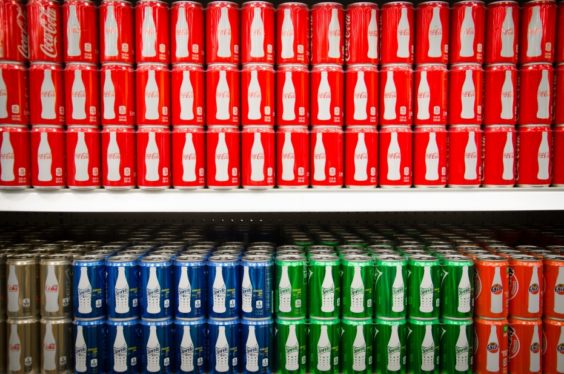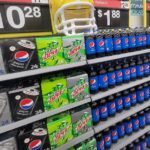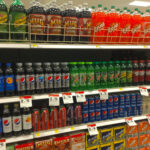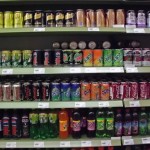
Many frugal shoppers have their own personal price points for their favorite products. Some, for example, won’t pay more than a dollar for a two-liter bottle of soda. But get a load of these prices – would you be willing to pay $3.16 for a two-liter? $8.37 for a 12-pack of cans? $8.87 for an 8-pack of Gatorade?
It may sound like a nightmare to price-conscious couponers – and many non-couponers aren’t too happy about it either. But this is no figment of anyone’s imagination.
The City of Brotherly Love is about to become the city of costly Coke and pricey Pepsi. Philadelphia has become the first major city in the country to pass a tax on sugary drinks – and other cities are watching closely to see how it goes, and perhaps getting their own ideas.
After months of debate and fierce lobbying from all sides, the Philadelphia City Council yesterday approved a “soda tax”, which applies not just to soda, but to most drinks containing sugar-based or artificial sweeteners – diet drinks included. It goes into effect in January.
Encouraging sugary-drink fans to make healthier choices is seen a nice side benefit, but not the goal of the program. Instead, the mayor hopes the tax will generate $91 million in the first year to help fill the city’s coffers and cover various expenses, none of which appear to include public health programs or efforts to make nutritious foods more affordable.
Soda is already subject to an 8% sales tax in the city. But unlike sales tax, the soda tax won’t be calculated as a percentage of the selling price. Instead, it will be levied at a rate of 1.5 cents per ounce. So whether that 2-liter of Coke is regularly priced at $1.99 or on sale for 99 cents, it won’t matter when it comes to calculating the soda tax – you’d still be paying the same $1.01 in tax (1.5 cents per ounce, times 67.6 ounces), in addition to the sales tax. So once you get to the register to pay for your 99-cent soda, you’d end up paying more than twice as much out of pocket, as the “sale” price listed on the shelf.
That means coupons won’t reduce the tax, either. Are you the recipient of a magical coupon that allows you to get a 12-pack of soda for free? At a total of 144 ounces, that “free” soda will cost you $2.16 in tax – which is more than some frugal shoppers are willing to pay for a 12-pack even without tax.
Supporters of the measure point out that technically, the tax is on distributors – so paying upwards of 3 dollars for a 2-liter of Coke will only happen if the full tax is passed on to consumers. And that’s not likely to happen. Yet, one study on a recently-imposed soda tax in Berkeley, California found that up to 70% of the cost was borne by shoppers. So even if consumers pick up only a portion of the tab, the tax still represents a significant price increase.
Retailers and soda companies fought hard against the measure. Now that it’s passed, though, they’re worried that other major cities might follow suit. So it won’t be a surprise if they start doing what they can, to help soften the blow for their customers. If soda taxes start proliferating, then coupons for soda, which are relatively rare compared to other grocery items, might become a whole lot more plentiful. And retailers might respond by offering more deals, to keep prices in check and to keep their customers coming.
That’s what public health researcher Jennifer L. Pomeranz of Philadelphia’s Temple University predicted would happen, in a study published a couple of years ago. Soda companies opposed to increased taxes “will emulate the strategies employed by tobacco companies in their attempts to counteract the impact of such taxes,” by offering even more coupons and discounts to help keep prices low, she wrote.
So she proposed banning sales and discounts altogether. “As policymakers increase efforts to pass sugary beverage taxes,” she wrote, they should “consider two complementary laws – minimum price laws and prohibitions on coupons and discounting – to accomplish the intended price increase.”
A ban on coupons and sales? It’s already happened with tobacco products, in several places. Now that soda taxes are a reality, a ban on soda coupons and sales is no longer quite so far-fetched.
So the next time there’s a sale on soda near you, you might want to start building that stockpile. Or kick the habit, save some money – and switch to water instead. At least until cities start imposing new taxes on that.
Image source: Coca-Cola











stores outside the city will do well–huge signs letting people know last chance for cheaper sodas — it would be easier to charge one cent per container like they do in the Carolinas–maybe wv does this also
Makes you wonder what country you live in sometimes. Ridiculously foolish tax anyway, as I would just drive to the next city to buy. Probably penalizes restaurants nicely as fountain soda is a big profit margin.
I don’t drink pop, but wow. This is a dangerous slope.